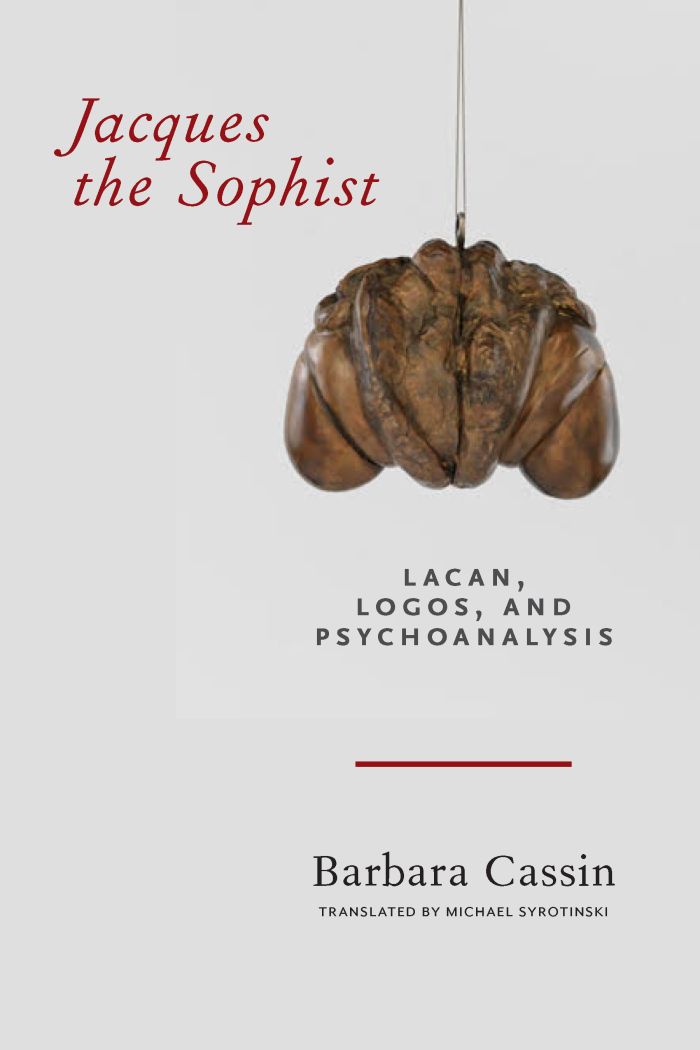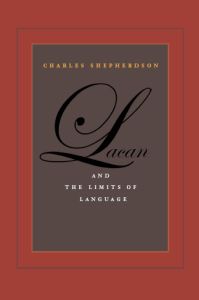Jacques the Sophist
Lacan, Logos, and Psychoanalysis

This book can be opened with

Sophistry, since Plato and Aristotle, has been philosophy’s negative alter ego, its bad other. Yet sophistry’s emphasis on words and performativity over the fetishization of truth makes it an essential part of our world’s cultural, political, and philosophical repertoire. In this dazzling book, Barbara Cassin, who has done more than anyone to reclaim a mode of thought that traditional philosophy disavows, shows how the sophistical tradition has survived in the work of psychoanalysis.
In a highly original rereading of the writings and seminars of Jacques Lacan, together with works of Freud and others, Cassin shows how psychoanalysis, like the sophists, challenges the very foundations of scientific rationality. In taking seriously equivocations, jokes, and unfinishable projects of interpretation, the analyst, like the sophist, allows performance, signifier, and inconsistency to reshape truth.
This witty, brilliant tour de force celebrates how psychoanalysts have become our culture’s key dissidents and register, in Lacan’s words, “the presence of the sophist in our time.”
Barbara Cassin's truly original and groundbreaking engagement with Greek philosophy, and particularly with sophistry, constitutes one of the milestones of contemporary philosophy. Her book on Jacques Lacan is a paramount example of this achievement, as well as of the novelty and productivity of the perspective opened by it. It is a most compelling reading of Lacan’s oeuvre, pursuing and revealing its unique and radical edge.—Alenka Zupančič, author of What IS Sex?
Cassin’s most adventurous—and beautifully written—work to date, a far-reaching meditation on the presence in modern thought of the sophistic discourses that philosophy has never succeeded in consigning to the past.—Andrew Parker, Rutgers Unviersity
Barbara Cassin is Director of Research at the CNRS in Paris and a member of the Académie Française. Her widely discussed Dictionary of Untranslatables has been translated into seven languages, and her Nostalgia: When Are we Ever at Home? won the 2015 French Voices Grand Prize. Her most recent books to appear in English are Google Me: One-Click Democracy and, with Alain Badiou, There’s No Such Thing as a Sexual Relationship.
Michael Syrotinski (Translator)
Michael Syrotinski is Marshal Professor of French at the University of Glasgow, Scotland. He is the author of Deconstruction and the Postcolonial and cotranslator of Cassin’s Dictionary of Untranslatables.
Prologue: “How Kind of You to Recognize Me” | 1
1. Doxography and Psychoanalysis, or Relegating Truth to the Lowly Status It Deserves | 5
2. The Presence of the Sophist in Our Time | 23
3. Logos-Pharmakon | 39
4. Sense and Nonsense, or Lacan’s Anti-Aristotelianism | 59
5. The Jouissance of Language, or Lacan’s Ab-Aristotelianism | 93
Epilogue: The Drowning of a Fish | 127
Acknowledgments | 133
Translator’s Note: Performing Untranslatability | 135
Notes | 141
Index | 171





